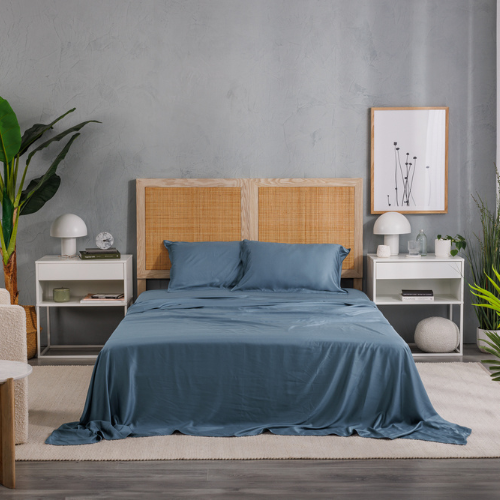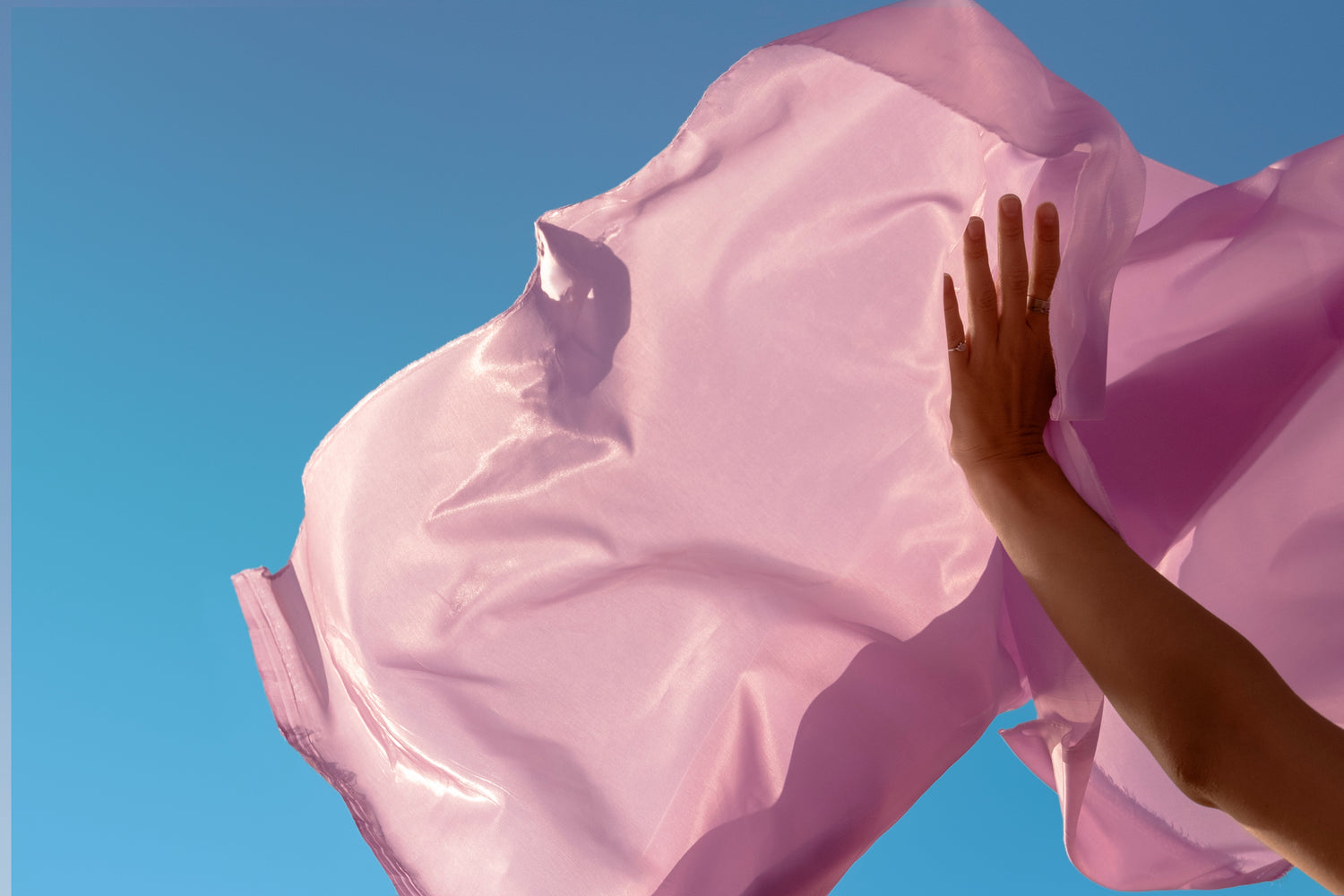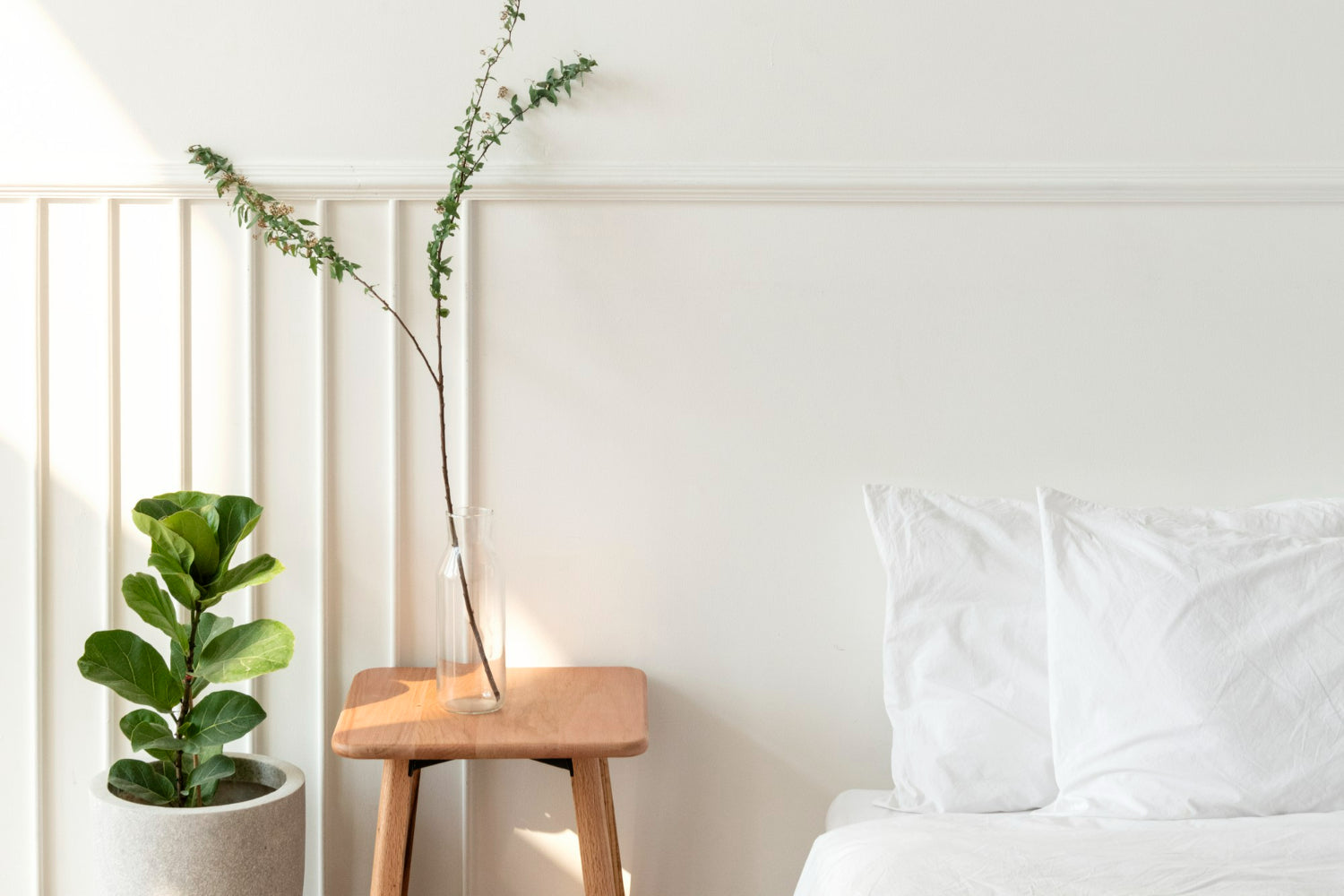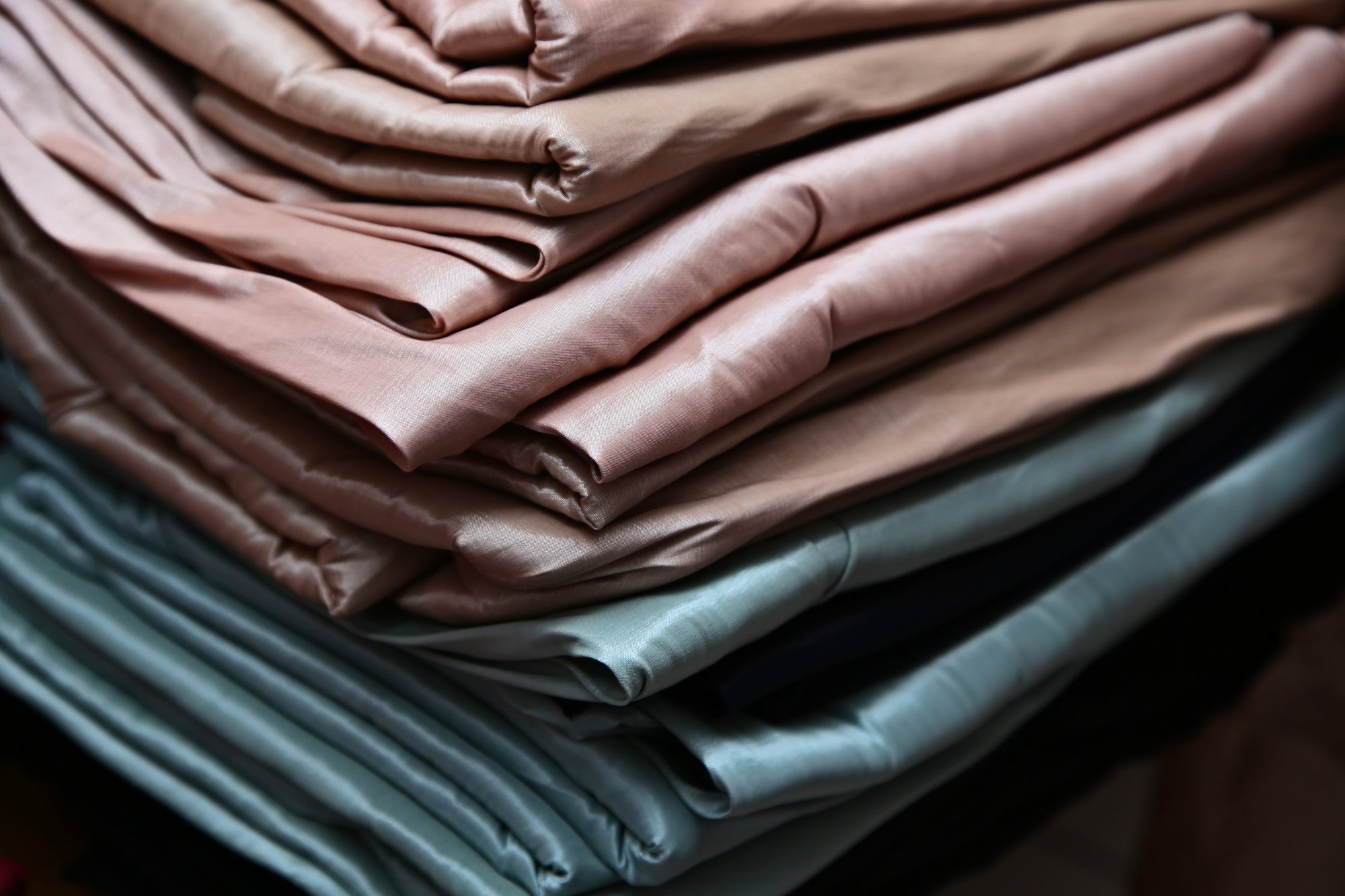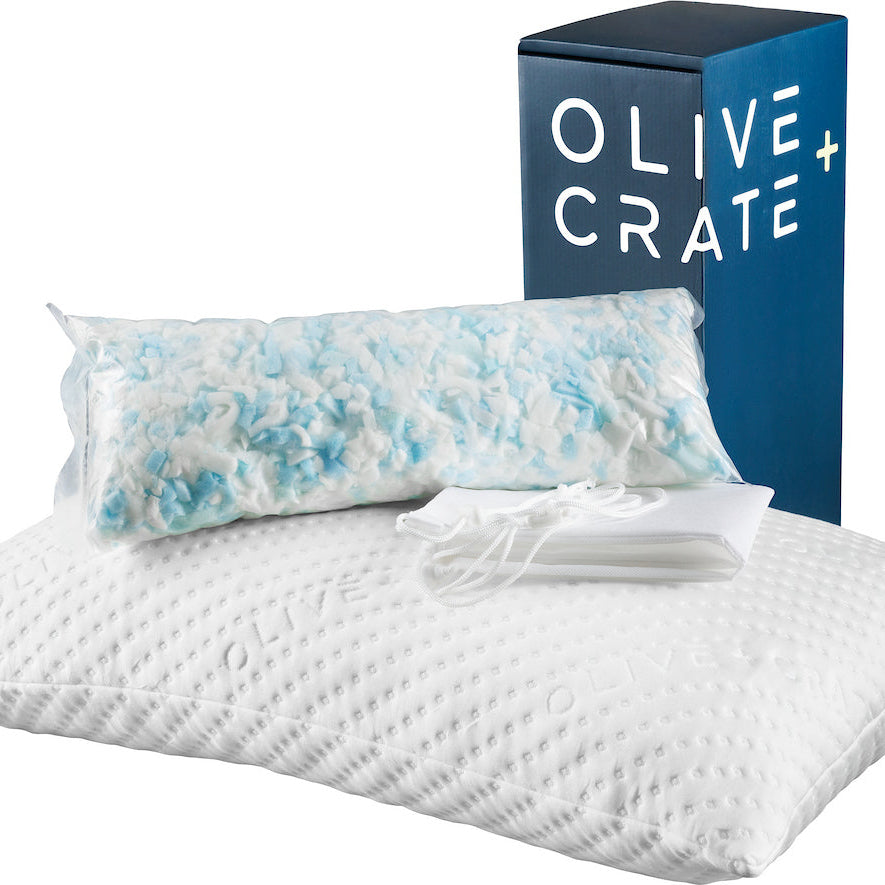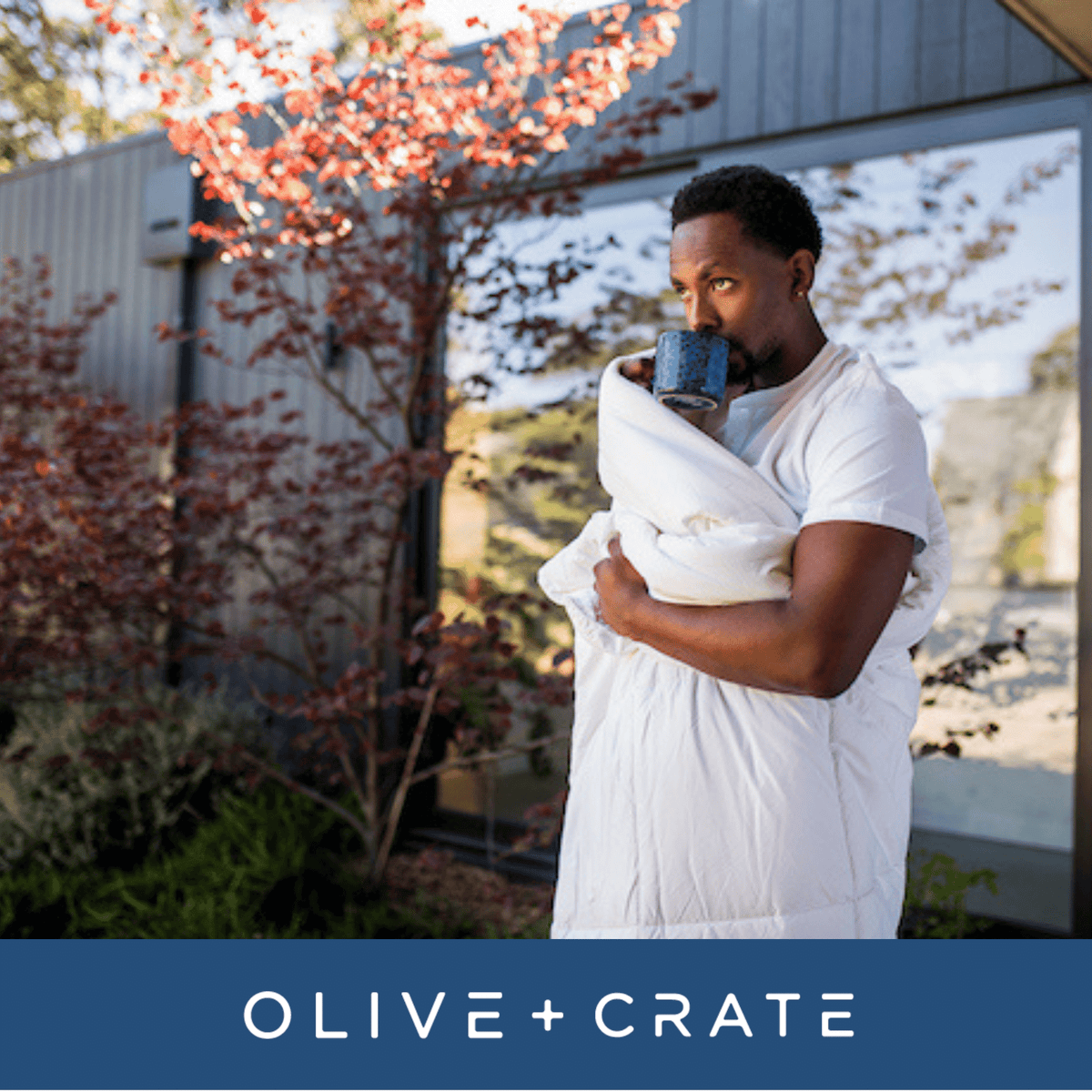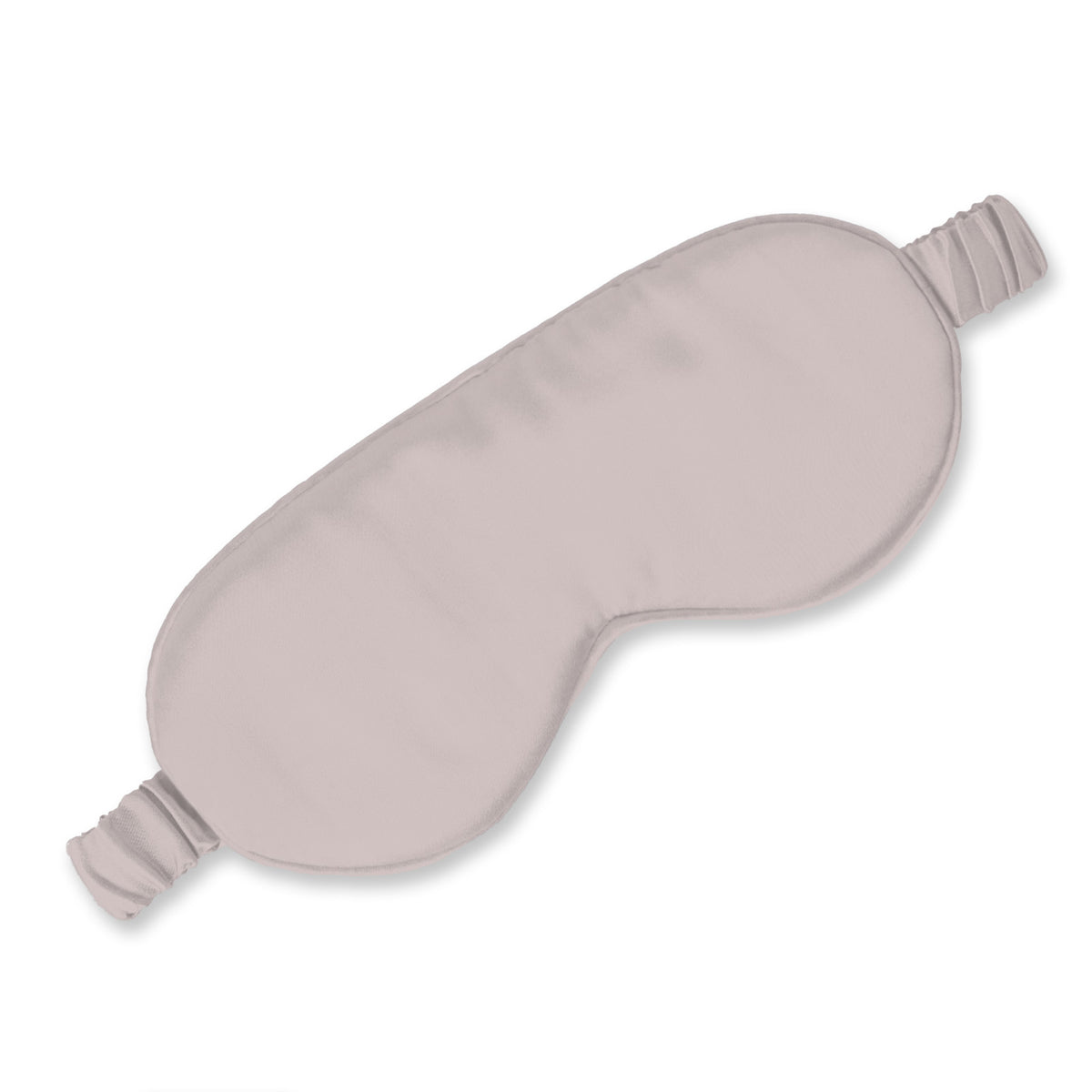Struggling with itchy skin, random rashes, or waking up feeling less than refreshed? If your skin flares up at night, your sheets might be the hidden culprit. For people with sensitive skin - whether due to eczema, allergies, acne, or just everyday irritation - the wrong bedding can trap heat, hold onto moisture, or cause friction that leads to discomfort and breakouts.
That’s why finding the best sheets for sensitive skin is about protecting your body’s largest organ while you rest. This guide breaks down the top fabrics that are gentle, breathable, hypoallergenic, and safe for even the most delicate skin, so you can sleep easy and wake up calm.
Why Fabric Matters: The Science Behind Skin-Friendly Sheets
Sensitive skin isn't a niche concern - 70% of people now identify as having it. Many are seeking relief from nighttime discomforts like rashes, breakouts, flare-ups, or itching. Often, the root cause lies in the sheets themselves: materials that trap heat, feel scratchy, or hold onto chemicals can wreak havoc overnight.
Choosing the best fabrics for sensitive skin can solve problems like:
-
Chronic irritation or allergic reactions
-
Acne or "bacne" linked to bacteria or trapped oils
-
Overheating and night sweats
-
Poor sleep quality due to discomfort
The best materials work with your skin, not against it. They're natural, breathable, low-friction, and free from toxic chemicals.
What to Look for in Hypoallergenic Sheets
The best sheets for eczema, acne-prone, or reactive skin share a few non-negotiables. These fabric traits can offer real, noticeable changes in how your skin feels day to day:
-
Hypoallergenic: Naturally resistant to allergens, dust mites, and bacteria
-
Breathable: Allow airflow to keep your skin cool and dry
-
Moisture-wicking: Pull sweat and oils away from your body
-
Low friction: Smooth surfaces help prevent irritation
-
Chemical-free: Certified organic or OEKO-TEX® tested
-
Soft and smooth: Gentle texture that doesn't chafe or scratch
Making a conscious choice to select fabrics with these qualities is the most direct path to a wardrobe that feels like a second skin. It can transform the simple act of getting dressed from a potential source of discomfort into a foundation for feeling great all day.
The Top Natural Fabrics for Sensitive Skin
1. TENCEL™ (Eucalyptus Lyocell)
Made from sustainably sourced eucalyptus, TENCEL™ is a silky-soft fiber that's naturally antibacterial, moisture-wicking, and temperature-regulating. It excels at preventing irritation for acne-prone, eczema, or oily skin.
-
Cool and breathable
-
Exceptionally smooth (low friction)
-
Resistant to bacteria buildup
-
Eco-friendly and biodegradable
2. Organic Cotton
Organic cotton sheets are a gentle classic. Grown without pesticides or chemical treatments, they are soft, breathable, and perfect for everyday use.
-
Ideal for people with eczema or allergies
-
Look for 100% GOTS-certified organic labels
-
Avoid synthetic blends that trap heat
3. Bamboo & Bamboo Viscose
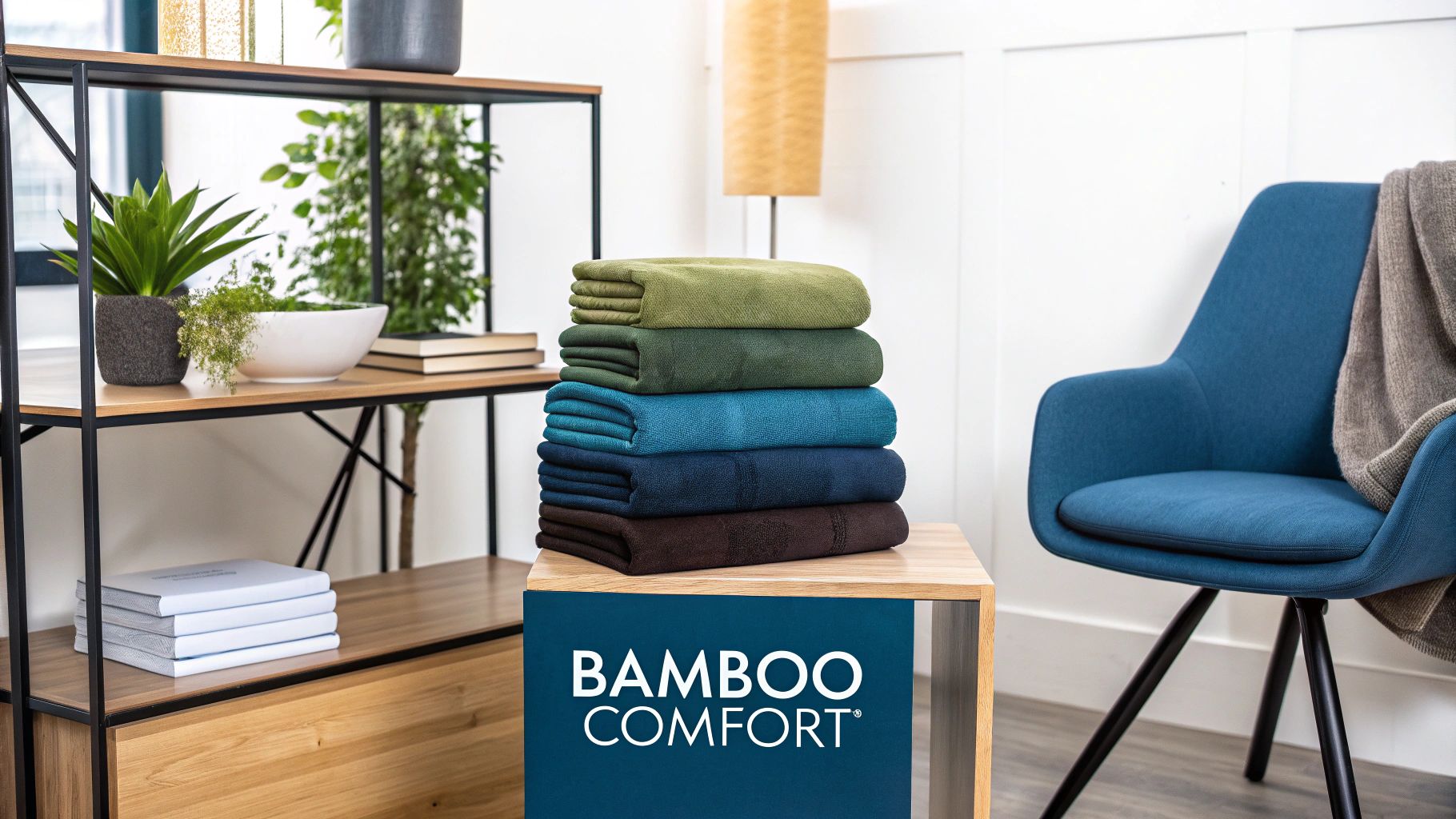 Ultra-soft with a cool, silky feel, bamboo sheets are perfect for hot sleepers or acne-prone skin. They're naturally antimicrobial and help regulate moisture.
Ultra-soft with a cool, silky feel, bamboo sheets are perfect for hot sleepers or acne-prone skin. They're naturally antimicrobial and help regulate moisture.
-
Great for oily skin, sweat-prone sleepers
-
Smooth surface prevents skin drag
-
Choose brands with closed-loop manufacturing for sustainability
4. Silk
Silk's ultra-smooth texture makes it a skin savior, especially on the face. It reduces tugging, is breathable, and doesn’t absorb skincare products like cotton can.
-
Best for pillowcases and sleepwear
-
Minimizes friction for eczema and rosacea
-
Requires gentle care and higher investment
5. Linen
Durable and airy, linen sheets are highly breathable and naturally hypoallergenic. Though slightly textured at first, they soften over time.
-
Ideal for summer or humid climates
-
Resistant to dust mites
-
Excellent for those with allergies or heat-triggered breakouts
(And if you’re thinking about pajamas, you might find this helpful). Though slightly textured at first, they soften over time.
What to Avoid: Fabrics That Can Trigger Sensitive Skin
Not all fabrics are created equal—especially if your skin is easily irritated. Some materials commonly used in budget bedding sets are the very ones that cause friction, trap heat, or leave chemical residues against your skin. These fabrics may be cost-effective for manufacturers, but they’re rarely gentle on your skin:
-
Polyester, nylon, and microfiber: These synthetic fibers trap heat and moisture, often creating the perfect storm for rashes or breakouts.
-
Synthetic blends: While "cotton-blend" sounds safe, it often includes 40–60% polyester, reducing breathability and increasing friction.
-
Chemically-treated fabrics: Products labeled "wrinkle-free" or "stain-resistant" are often treated with formaldehyde and other chemical agents that can cause contact dermatitis or itchiness.
To make safer choices, look for fabric transparency in product descriptions and avoid overly processed or vague blend labels.
-
Polyester, nylon, and microfiber: Poor breathability, traps moisture
-
Synthetic blends: Often mixed with cotton to cut costs but introduce friction and heat retention
-
Chemically-treated fabrics: Look for labels like "wrinkle-free" or "stain-resistant"—they often involve formaldehyde or other irritants
How to Decode Bedding Labels & Certifications
Reading between the lines can save your skin. Here’s what to look for:
-
"100% Organic Cotton" or "100% Bamboo Lyocell": Avoid vague blends
-
OEKO-TEX® STANDARD 100: Tested for harmful substances
-
GOTS Certified: Ensures organic farming + ethical processing
Avoid labels like "cotton-rich" or "cotton blend"—these usually contain synthetic fibers that reduce breathability and comfort.
Smart Laundry Habits That Support Sensitive Skin
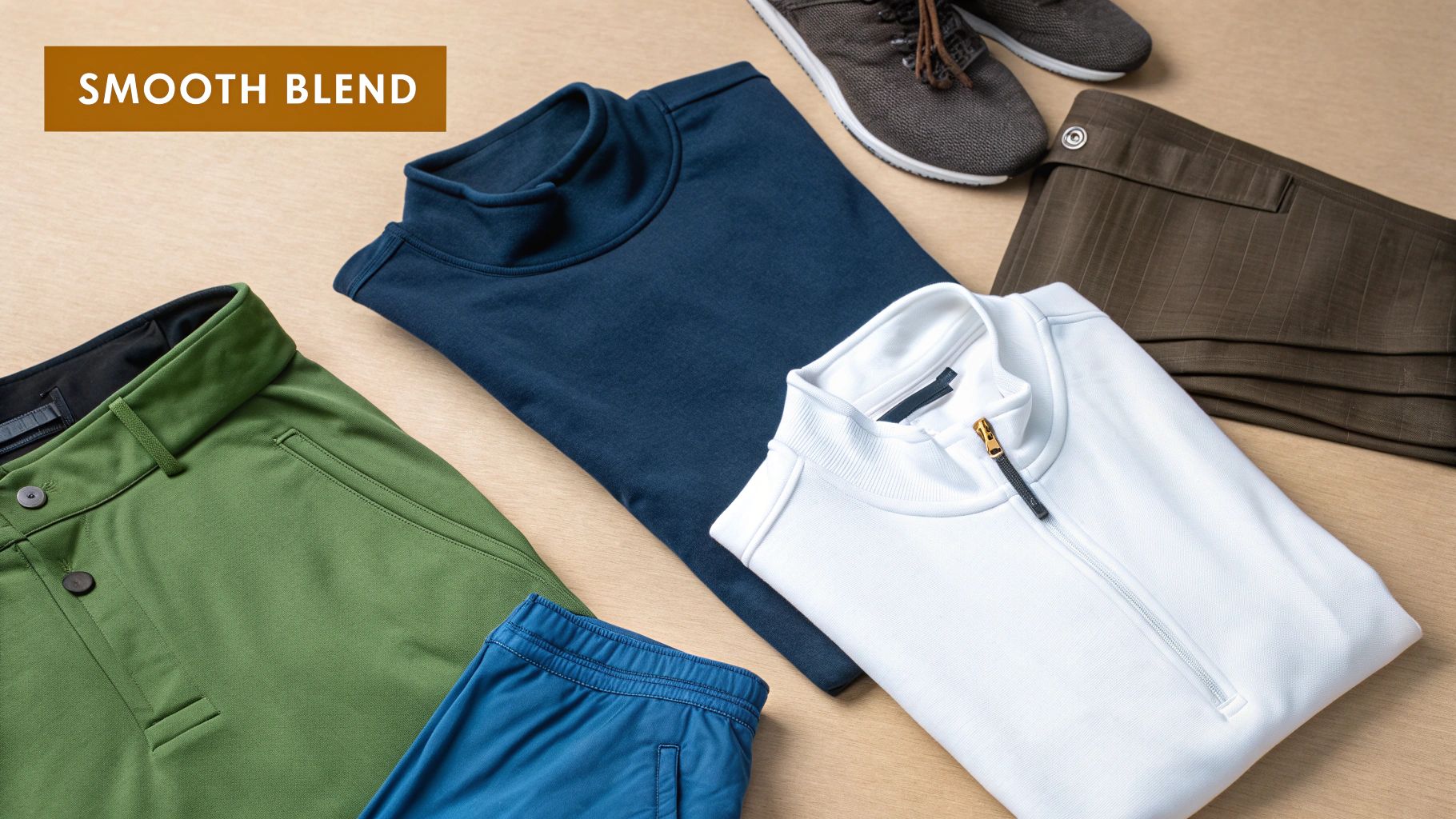 Even the best bedding can backfire if washed poorly. If your skin seems to react after laundry day, it's worth reevaluating your products and habits. Here’s how to build a laundry routine that supports rather than sabotages your sensitive skin:
Even the best bedding can backfire if washed poorly. If your skin seems to react after laundry day, it's worth reevaluating your products and habits. Here’s how to build a laundry routine that supports rather than sabotages your sensitive skin:
-
Choose the right detergent: Go for liquid or powder formulas that are specifically labeled as hypoallergenic and fragrance-free. Brands like Seventh Generation Free & Clear, Ecover Zero, or ECOS are dermatologist-recommended.
-
Ditch the softeners: Fabric softeners and dryer sheets often coat fabrics in waxy residues that trap heat and irritants. Instead, try unscented wool dryer balls to soften sheets naturally.
-
Pre-wash new sheets: New fabrics may contain residues from dye, sizing agents, or wrinkle-resistant treatments. One wash may not be enough—use a double rinse if needed.
-
Double rinse for peace of mind: An extra rinse cycle helps remove detergent or chemical residue thoroughly, leaving behind only clean, skin-friendly fabric.
By making these small changes, your bedding will stay as gentle on your skin as the day you bought it.. Adopt these habits:
-
Use fragrance-free, hypoallergenic detergent
-
Skip fabric softeners and dryer sheets - use wool dryer balls instead
-
Wash new sheets before first use to remove finishing chemicals
-
Add an extra rinse cycle to eliminate residue
FAQs: Bedding for Sensitive Skin
What’s the best fabric for eczema?
TENCEL™, silk, and organic cotton are excellent thanks to their low friction, breathability, and moisture management.
What are the best bed sheets for acne?
Bamboo, eucalyptus TENCEL™, and silk help reduce bacteria, oil buildup, and friction.
Are higher thread counts better?
Not necessarily. Very high thread counts can reduce airflow. Choose natural fibers with medium thread counts for balance.
Is bamboo better than cotton for sensitive skin?
Both are great. Bamboo is silkier and better at moisture-wicking, while cotton is more accessible and durable for daily use.
Give Your Skin a Better Night's Rest
The best sheets for sensitive skin are a wellness essential. Choosing materials that are soft, hypoallergenic, and breathable will create a safer sleep environment for your skin to heal and thrive.
Whether you're struggling with eczema, acne, allergies, or just want a more comfortable night's sleep, investing in the right bedding is one of the simplest changes you can make for better skin health.
Sleep better, feel better. Your skin will thank you.
At Olive + Crate, we craft our sleep essentials using premium TENCEL™ eucalyptus fibers—naturally soft, hypoallergenic, and perfect for sensitive skin. Ready to experience a calmer, cooler night's sleep? Explore our collection and find bedding that truly loves your skin back.


